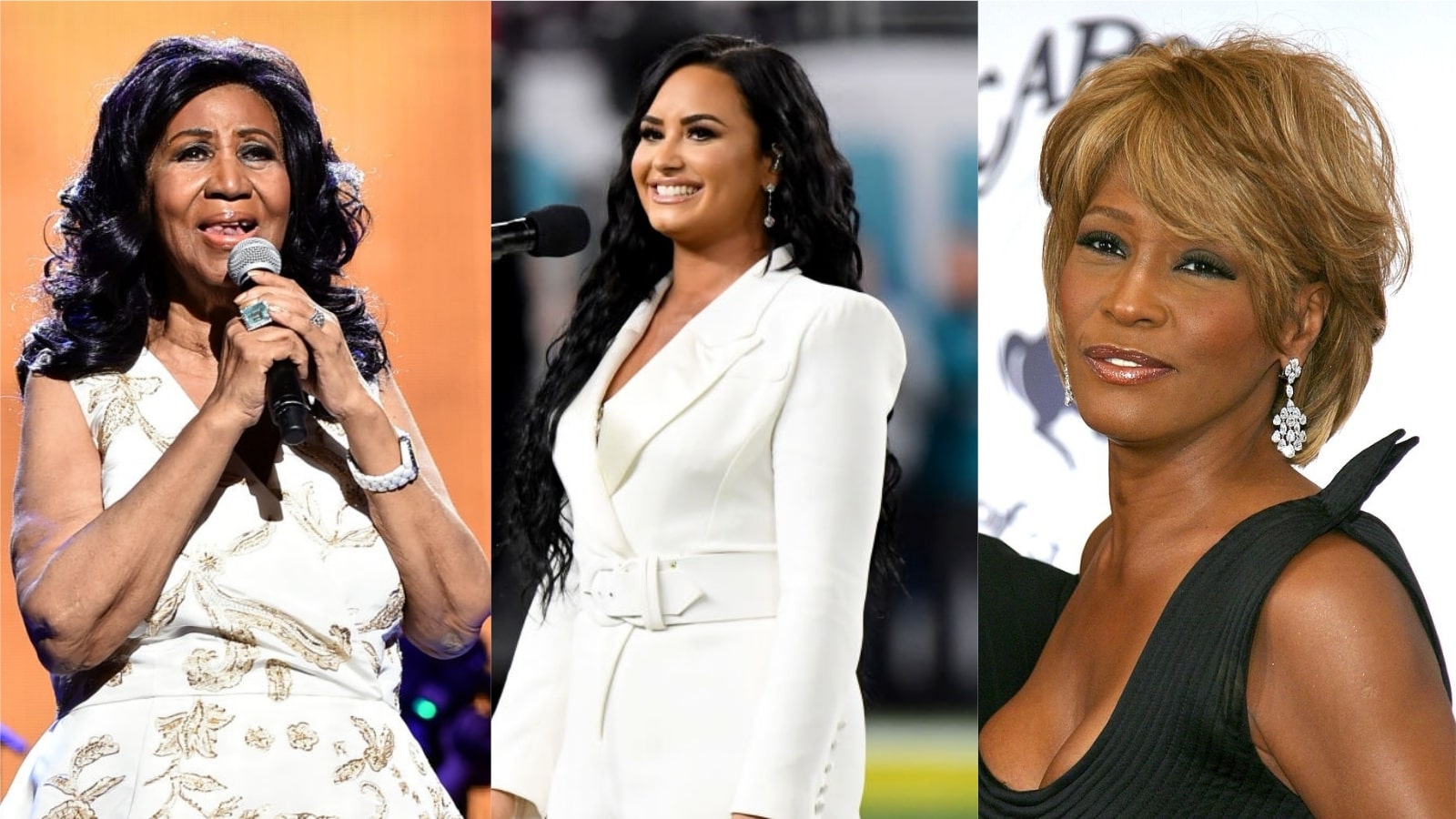Demi Lovato is speaking out on mental health, the Black Lives Matter movement, racism and her career.
In an essay for Vogue, which was published on Tuesday, she credits her wildly successful career to the Black women who paved the way and inspired her to sing as a child.
"I’ve always taken my advocacy work seriously, but now I’m looking at it with renewed focus. In this particular instance, what motivated me was knowing how much of myself comes from Black culture. I grew up listening to Aretha Franklin, Whitney Houston and other soulful singers, but those two Black women in particular shaped me into the vocalist I am," she wrote.
"If you look at my life, everything that I have — money, success, a roof over my head — it’s because of the inspiration those Black women gave me. I continue to be constantly inspired by people of color today. So here I am, sitting in a home that I was able to afford with the money that I have from singing, while people of color are fearing for their lives every day," Lovato said, adding that the quarantine has made her realize that she is privileged and had a responsibility to spread awareness about injustice.
Lovato goes on to write about how hard it was for her to speak out about these issues and the work she had to do in figuring out the best way to address racism.
She originally wanted apologize to people of color but eventually decided the best thing to do was to call out racism when she sees it and defend those who need to be defended.
"After taking some time to educate myself, what I’ve learned is that to be a good ally, you need to be willing to protect people at all costs. You have to step in if you see something happening that’s not right: a racist act, a racist comment, a racist joke. And it’s not just with Black Lives Matter. It’s also with the Me Too movement," she wrote.
Lovato writes that she has asthma so she did not feel comfortable joining any of the Black Lives Matter protests which have taken place over the past few months. But she hopes to devote more time to her music, advocacy and becoming a better person.
"When it comes to advocacy work, when it comes to implementing change in society, there’s always room for improvement. I wish I knew all the answers, but I know that I don’t. What I do know is that inclusivity is important. Creating environments where women, people of color and trans people feel safe is important," Lovato noted.
"Not just safe, but equal to their cis, white, male counterparts. People need to feel like they can enter a space and know they’re not going to be sexually harassed or underpaid," the singer said.
For hundreds of years, the music of white artists has been inspired by that of Black legends. But only some have admittedd it. Mick Jagger and Keith Richards have openly said they adored and took heavily from B.B King, Muddy Waters, Chuck Berry and Howlin' Wolf, according to HuffPost.
John Lennon once responded to criticism from The New York Times by openly admitting that when The Beatles started out, they were playing Black music.
“We didn’t sing our own songs in the early days – they weren’t good enough. The one thing we always did was to make it known that there were Black originals, we loved the music and wanted to spread it in any way we could,” Lennon allegedly said, according to We're History.
“It was only natural that we tried to do it as near to the record as we could – I always wished we could have done them even closer to the original,” he added at the time.
Meanwhile, artists like Iggy Azalea, Bhad Bhabie, Awkwafina and even 6ix9ine have faced accusations of stealing their style from Black people and not acknowledging its roots, both past and present.
